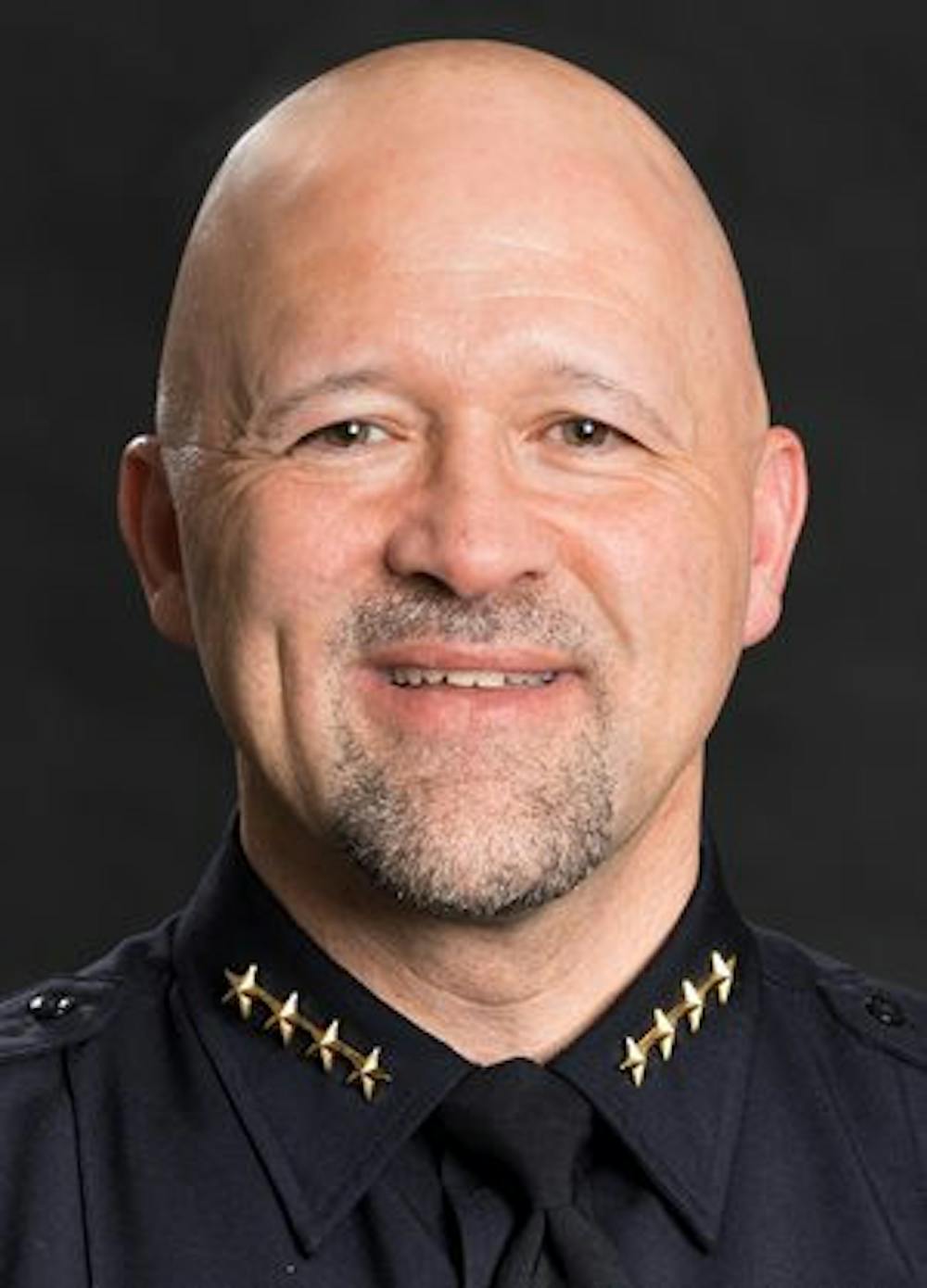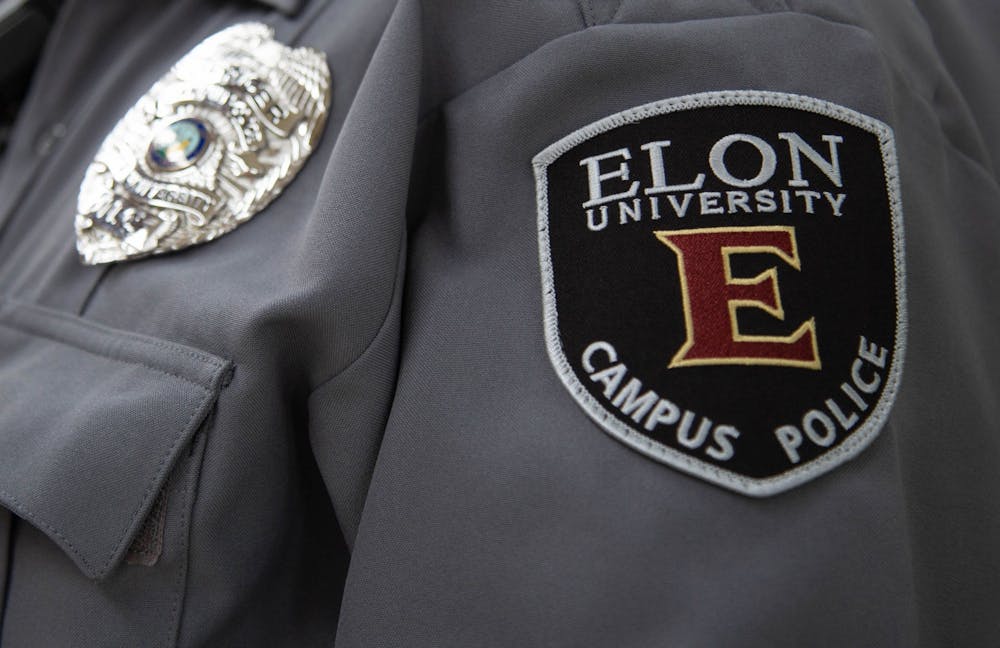
Campus Police Chief Joe LeMire discussed safety for the school year, changes made to the department and the biggest concerns for the new academic year. He discussed changes made due to recent mass shootings across the country and staffing shortages among several police departments. Some of the improvements include new equipment, new officers, and delegating liaisons for campus neighborhoods to talk to students about topics such as a sexual assault.
This interview has been edited for clarity.
What improvements were made over the summer to improve student safety?
“The number one improvement we had was just staffing alone. So across the country, everybody sees the stories of police departments and cities and other areas that staffing is down sometimes — anywhere from 20 to 40%. We were the same way. We're budgeted for 20 officers. And when I got here in March of ‘21, we had 12. We are at this point today: fully staffed. We were able to hire some brand new employees, some people with some experience and even a few people with 25 years of experience in that group of people.
Two of the people we hired are both rapid response instructors for the state of North Carolina. So, we're going to do our own internal training as it relates to active shooter active violence. We also had some budget money available where we bought the appropriate equipment that we would need.”
Because of recent national events, do you feel like Elon is a safe campus?
“Elon as a town is a very safe area. In fact, I think I read the article where they were voted No. 1, for five years in a row, the safest town in North Carolina. But as I said in my presentation to parents, I said, ‘You never want students to fall into that false sense of complacency that we're safe, and we don't need to take appropriate steps to keep ourselves safe.’ Last year and over the summer, some of the things that have been happening are stolen vehicles and thefts from vehicles. We've got people coming into our area — Burlington, Elon, and some other areas — and what's happening is, especially with students, a lot of people feel it's a safe area. A lot of cars drive by fob. Well, people will just throw the fob somewhere in the car.
People are going around and pulling on door handles until they find one that's open, getting in the car, pressing the brake and hitting the button. If the car starts, they steal it. So we've had an incident over the summer where we had, like, seven cars stolen in one night. And I think the bulk of them are all students that lived off campus. It wasn't happening on campus, but nearby obviously. So we're trying to get that word out to people that that's the safety component.”
What is the main concern for this year?
“I've learned in higher education in the last 14 years that some of the biggest crimes you see on campus are theft. If you put thousands of people in one area, what are you’re going to see if you go to a campus, you're going to find a lot of electronics.
You're going to find a lot of laptops, a lot of computers, a lot of cell phones, a lot of stuff like that. People gravitate to an area where you might be able to steal stuff like that.”
Are there other concerns as the school year starts?
“One of the things we're working on as a department is a sensitive crimes team. We hired two more female officers this past year, and they're really getting involved in sensitive crimes, and sexual assaults and things like that. So these first months of school, especially for freshmen, is the riskiest time for sexual assault and things of that nature. So we want to have that focus out there. We're putting in some resources together to have presentations on sexual assault and sexual violence interpersonal violence, that type of stuff.”
How do you plan to educate students this year?
“We've put information out twice, I think, in the last 12 months about cars and locking your doors and things like that, but it's getting people to actually read it and then take the action. People like convenience, so they'll leave a key in the car until it actually impacts them. So it's a lot of email and education that way the sexual assault piece we plan to do through those liaisons in the neighborhoods and meeting people face to face and having those conversations. We do a lot of work with student groups and student organizations where we're partnering and having these conversation sessions."
What do you say to students who say they’re not concerned because Elon is a safe campus?
“It's not 100% safe. There's no place in the world that is 100% safe, and that's not a comment you can make at the second you're victimized or hurt in some way, or your friend is hurt in some way.
You don't want that to be when you realize, ‘Oh my God, it's not 100% safe.’ Take this information now and just practice those safety habits that we talk about, and you can get to even a higher level of safety.”
What else do you want students to know as the academic year begins?
“There's two big things. Rave Mobile Safety technology is the company we use for our eAlerts emails, texts and all that. We're trying to get all students to get their cell phone into their OnTrack account. There's a combination of two things happening. Some are not putting their cell phone in there, or some are putting their mom and dad's cell phone in there. Make sure it's yours, because every night, that downloads to the system. And when we push out an emergency message, that's who it's going to go to — whatever cell phone text message to that number.
On top of that, we moved on from LiveSafe. We're now with Rave Guardian. They can download that at the app store, associate yourself with Elon University, and you can do text messaging with the police department emergency calls. We've got a call directory in there for you for all local law enforcement and the hospital. And you can do some virtual safe walks and things like that to keep yourself safe.”


